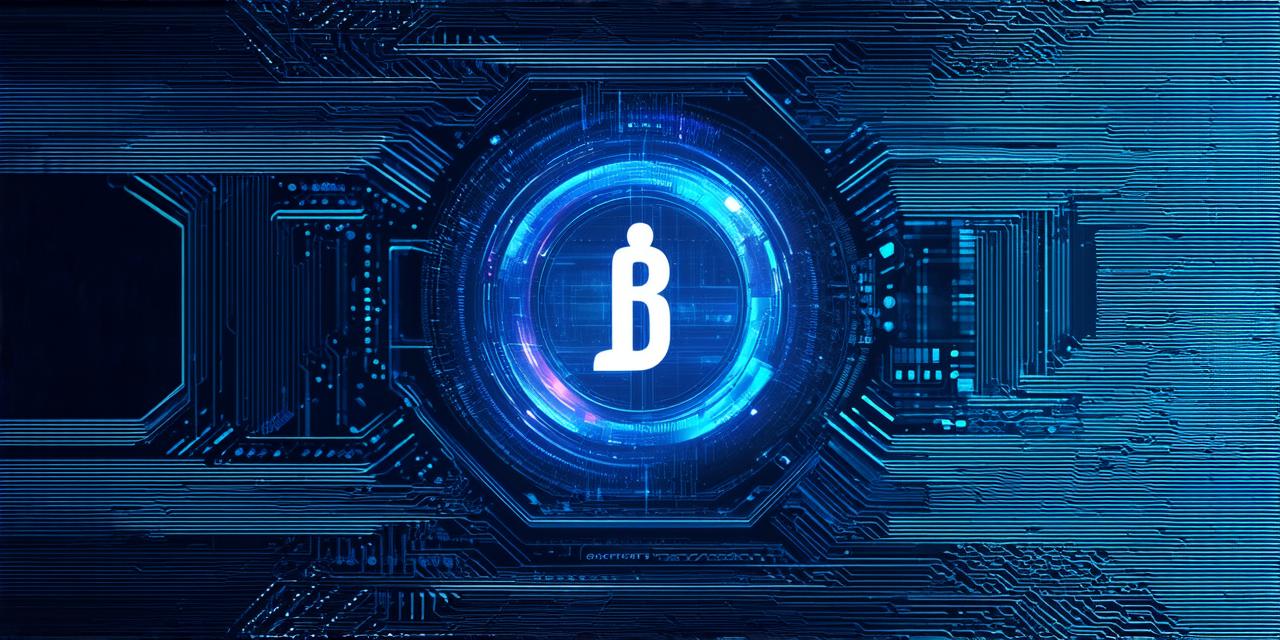Introduction
Blockchain technology is gaining widespread attention due to its ability to provide secure and decentralized data storage. However, blockchain’s potential for data privacy also requires a deeper analysis of how it can be used to enhance security and protect user information. In this article, we will explore the role of blockchain in supporting data privacy, using case studies and expert opinions to illustrate its benefits and limitations.
What is Blockchain?
Blockchain is a distributed ledger technology that allows for secure and transparent transactions without intermediaries. It consists of a chain of blocks, each containing a record of multiple transactions. These blocks are linked together using cryptographic algorithms, making it virtually impossible to alter or manipulate the data once it has been added to the blockchain.
How Blockchain Supports Data Privacy
Decentralization
One of the main benefits of blockchain is its decentralized nature. Unlike traditional databases that are managed by a central authority, blockchain does not have a single point of failure. Instead, data is stored across multiple nodes in the network, making it more secure and resilient to attacks.
Immutability
Another key feature of blockchain is its immutability. Once data has been added to the blockchain, it cannot be altered or deleted. This ensures that user information remains secure and protected from unauthorized access.
Consent-based sharing
Blockchain can also enable consent-based sharing of data. Users can choose who has access to their information and under what conditions. This provides greater control over personal data and reduces the risk of data breaches or misuse.
Smart contracts
Smart contracts are self-executing contracts that are stored on the blockchain. They can be used to automate data sharing, ensuring that only authorized parties have access to sensitive information.
Real-life Examples
Healthcare industry
In the healthcare industry, blockchain technology can be used to store and share patient data securely. This can help improve patient outcomes by enabling doctors to access up-to-date medical records and reduce the risk of medical errors. For example, the MediLedger Project is a blockchain-based system that allows for secure sharing of pharmaceutical supply chain data, ensuring that patients receive authentic drugs and reducing the risk of counterfeit drugs entering the market.
Financial industry
In the financial industry, blockchain technology can be used to streamline cross-border payments and reduce fraud. For example, Ripple is a blockchain-based payment protocol that allows for fast and secure cross-border transactions, reducing the need for intermediaries such as banks.
Supply chain management
In supply chain management, blockchain technology can be used to track goods from production to delivery, ensuring transparency and security. For example, Walmart uses a blockchain-based system to track food products in its stores, enabling it to quickly identify and remove contaminated products, reducing the risk of foodborne illnesses.
Expert Opinions

Andreas Antonopoulos
Andreas Antonopoulos is a blockchain expert and author of several books on the topic. He believes that blockchain technology has the potential to revolutionize data privacy: "Blockchain can provide a secure, decentralized, and transparent platform for data sharing and management. It can help protect user information from unauthorized access and reduce the risk of data breaches."
David Chaum
David Chaum is a computer scientist and inventor who is widely regarded as the father of digital cash and cryptocurrency. He believes that blockchain technology can be used to create a secure and decentralized platform for data sharing: "Blockchain provides a way for users to control their own data and share it only with authorized parties. It can help protect user privacy and reduce the risk of data breaches."
Dr. Elizabeth Blackburn
Dr. Elizabeth Blackburn is a molecular biologist who won the Nobel Prize in Physiology or Medicine in 2009 for her work on telomeres. She believes that blockchain technology can be used to protect patient data and improve healthcare outcomes: "Blockchain technology provides a secure and transparent platform for storing and sharing patient data, which can help improve patient outcomes and reduce the risk of medical errors."
Challenges and Limitations
While blockchain technology has several potential benefits for data privacy, it also presents some challenges and limitations. One of the main challenges is the scalability of blockchain networks. As the number of users and transactions increases, the network can become slower and less efficient. This can be addressed by implementing sharding or other scalability solutions.
Another challenge is the complexity of blockchain technology. While it has the potential to provide greater control over personal data, it also requires a certain level of technical expertise to implement and maintain. This can be a barrier for some organizations, particularly those with limited IT resources.
Summary
In conclusion, blockchain technology has the potential to support data privacy by providing a secure, decentralized, and transparent platform for data sharing and management. By enabling consent-based sharing of data and automating data sharing through smart contracts, blockchain can help protect user information from unauthorized access and reduce the risk of data breaches. While there are some challenges and limitations to consider, the benefits of blockchain technology make it a promising tool for improving data privacy and security in various industries.
FAQs
What is blockchain?
Blockchain is a distributed ledger technology that allows for secure and transparent transactions without intermediaries. It consists of a chain of blocks, each containing a record of multiple transactions, linked together using cryptographic algorithms.
How does blockchain support data privacy?
Blockchain supports data privacy by providing decentralization, immutability, consent-based sharing, smart contracts, and transparency. These features enable secure and controlled sharing of personal data, reducing the risk of data breaches and misuse.
What are some real-life examples of blockchain being used for data privacy?
Blockchain technology is
